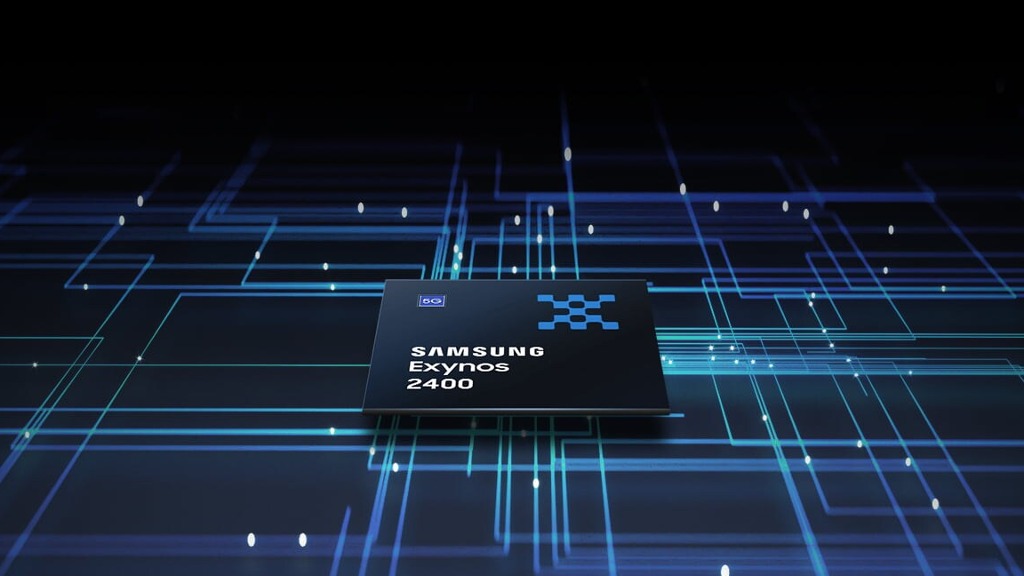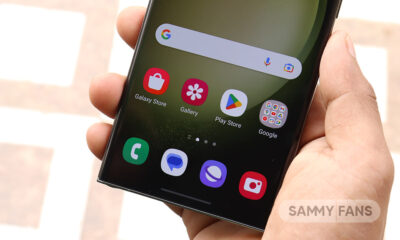News
Google Chrome is ready to stop you making URL typos

Recently, Google revealed many new accessibility features to mark this year’s Global Accessibility Awareness Day. The announcement includes a minor yet incredible feature for the Google Chrome browser, which will stop you from making typos while entering the URL.
According to the info, when a user type a website into the Google Chrome browser’s address bar, it will detect URL typos and suggest websites based on the corrections. It often happens with people while visiting a direct URL, which leads error if there’s a lit bit of a typo in the entered URL.
Follow our socials → Google News, Telegram, Twitter, Facebook
Google Search is different from the Adress Bar. If you make any typing mistake in the Search, it will deliver relevant results by fixing the typing error that happened mistakenly. Meanwhile, it becomes quite frustrating when you are in a hurry and want to visit a website using the URL.
Thankfully, Chrome’s enhanced Adress Bar increases accessibility for people with dyslexia, language learners, and anyone who makes typos by making it easier to get to previously visited websites despite spelling errors. At present, this feature is live on Chrome Desktop and ready to roll out to mobile in the coming months.
Earlier, Android’s Chrome app added new functionality for TalkBack users, which makes it easier to manage and organize tabs. The company says, “whether it’s Global Accessibility Awareness Day or not, we’re committed to creating a world that’s accessible for everyone.”

Image – Android Police
News
Samsung boosts HBM capabilities with new investments

Samsung has reportedly signed a contract valued at around $15 million to sell and purchase semiconductor equipment to expand HBM chip production facilities at its Suzhou plant in China.
BusinessKorea reports that Samsung is expanding its investments across HBM facilities. The company aims to strengthen its advanced semiconductor packaging to lead the supply chain.
Eying the HBM4 chip boom, the Korean tech giant is focusing on enhancing its packaging capabilities to secure future technological competitiveness and narrow the gap with SK Hynix.
KEDGlobal revealed that Tesla asked Samsung and SK Hynix to supply HBM4 samples. The US EV maker could choose either Samsung or SK Hynix as its HBM4 supplier after testing samples.
Pay attention, packaging includes the tech and processes for shaping semiconductor chips to fit the devices they will be mounted on – making it an important aspect of development and production.
Notably, the Suzhou China facility is currently Samsung’s test and packaging production base outside Korea. Increased investment is seen as a choice for innovation in packaging processes and production efficiency.
Apart from this, the company is also ramping up its packaging production bases in Korea. Samsung has recently signed an investment agreement with South Chungcheong Province and Cheonan City.
News
Samsung could get a major role in Tesla’s AI revolution

Tesla reportedly asked Samsung and SK Hynix to supply HBM4 chip samples. Both semiconductor firms are developing sixth-generation high-bandwidth memory chip prototypes for Tesla.
KEDGlobal reports that Tesla asked Samsung and SK Hynix to supply HBM4 chips for general use. It is expected to choose one of the two companies as its HBM4 supplier after testing their samples.
Using custom HBM4 chips made by Samsung and SK Hynix, Tesla seeks to enhance its artificial intelligence (AI) capabilities apart from reducing AI chip reliance on Nvidia.
Samsung is working hard to win Tesla orders for HMB4 chips. The company even working with Taiwan’s TSMC to foster its HBM chip’s development and maintain an edge over SK Hynix.
SK Hynix is also accelerating its development to maintain its leadership in the HBM space. The firm winning Tesla’s HMB orders would see a sharp push in the global memory supply chain.
Notably, the 6th-gen HBM4 chips are crucial for Tesla’s Dojo supercomputer, which is designed for training AI models and will also support its AI data centers and autonomous cars.
The HBM4 semiconductor offers notable enhancements over the previous generations, delivering up to 1.65 Tbps of bandwidth, 1.4 times faster than the HBM3E while consuming 30% less power.
News
Report: Samsung eyes 2nm Exynos 2600 to attract Qualcomm, Nvidia

Samsung Foundry wants to produce Exynos to attract 2nm clients like Qualcomm and Nvidia. Major chip designers have no option other than TSMC for contract semiconductor production.
Digitimes report suggests that Samsung Foundry wants to produce 2nm Exynos 2600 chipset. The company has recently started Exynos 2500’s mass production for Z Flip 7, Korean media reported.
TSMC is producing 3nm Snapdragon 8 Elite chips for Qualcomm. Nvidia also produces its most advanced semiconductors using TSMC’s cutting-edge process nodes.
The latest report indicates that Samsung Foundry is advancing its semiconductor capabilities. The mass production of Exynos 2600 is under consideration for next year.
Samsung Foundry has no other option but to prove its semiconductor capabilities. If the Foundry division manages to secure decent yield rates in the 2nm process, Qualcomm may ink a deal.
Exynos 2600 is a great opportunity to demonstrate the technological innovations of the Foundry division. It would attract key clients like Qualcomm, marking a strategic push for the business.
Samsung will have 2x benefit with the 2nm process technology. The Exynos 2600 would power the Galaxy S26 series – ending the reliance on Qualcomm for Snapdragon chipsets.
Qualcomm will also get the opportunity to negotiate production costs with TSMC. Samsung Foundry is comparatively cheaper than TSMC as there will be two major options for clients.
“Samsung Electronics’ foundry division is advancing its semiconductor capabilities through the mass production of the Exynos 2600 (tentative name), marking a strategic push for self-sufficiency in mobile application processors (APs).” – Digitimes.










